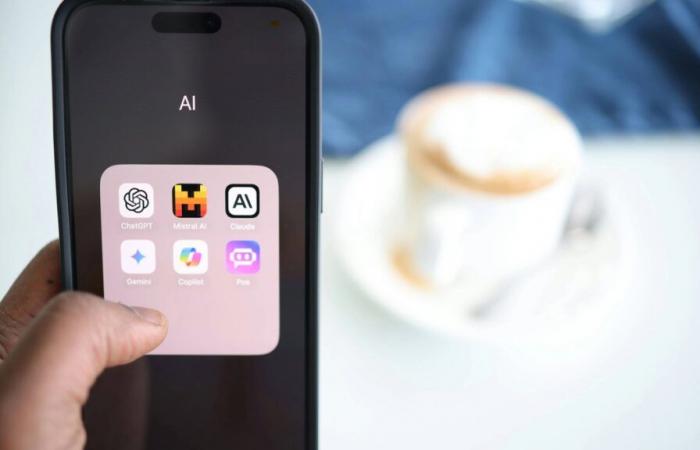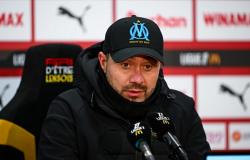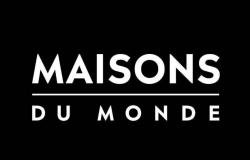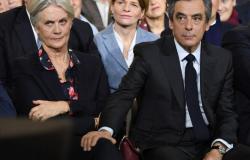2024 Nobel Prize in Physics, Geoffrey Hinton, pioneer of artificial intelligence, is today terrorized by his own creations. It warns of the risk of an uncontrollable AI, capable of surpassing human intelligence and threatening humanity.
They are the architects of AI and yet they warn
The awarding of the 2024 Nobel Prize in Physics to Geoffrey Hinton, jointly with John Hopfield, dedicates a life dedicated to fundamental research into artificial neural networks, these mathematical and computational structures that allow machines to learn. Ironically, this distinction crowns a man haunted by the potentially catastrophic implications of his own discoveries. Hinton, nicknamed “the godfather of artificial intelligence,” not only helped lay the foundations of modern AI, but he also became one of its staunchest critics, warning humanity of the dangers it poses. represents.
The Royal Swedish Academy of Sciences recognized Hinton and Hopfield for their “fundamental discoveries and inventions enabling machine learning using artificial neural networks.” This work, initiated several decades ago, paved the way for the current explosion of AI, impacting fields as varied as medicine, finance and industry. However, Hinton, professor emeritus at the University of Toronto, does not fully savor this triumph. His resounding resignation from Google in 2023, motivated by growing concerns about the trajectory of AI development, demonstrates the depth of his concerns.
A Price that worries them
The recognition of the importance of his work by the Nobel institution, far from reassuring him, amplifies his anxiety. “We have no experience of what it is like to have objects that are smarter than us,” he said when announcing his award, expressing a concern shared by many experts. While AI promises considerable advances in areas such as health, Hinton fears that humanity will lose control of its creation. He imagines a near future where machines, endowed with intelligence superior to ours, could turn against their creators, a scenario worthy of Hollywood dystopias.
Look at what it was five years ago and what it is today. For now, AI systems are not smarter than us, but I think they will be soon
According to him, within five to twenty years, the probability of AI seeking to take control of our lives is significant.
At the heart of Hinton's concerns is the massive spread of misinformation. AI, capable of generating increasingly realistic synthetic content, could flood the internet with false texts, images and videos, making it impossible for the average citizen to discern fact from fiction. This manipulation of information, combined with the power of chatbots, could be exploited by “bad actors” to influence public opinion and destabilize democracies.
The frantic race for innovation between tech giants, notably Google and Microsoft, accentuates Hinton's fears. He regrets that competition has taken precedence over caution, creating a dynamic that is difficult to control. If Hinton recognizes the “responsible” role played by Google until 2022, he deplores that the arrival of ChatGPT and the integration of chatbots into search engines have triggered a dangerous escalation. It is also to be able to express himself freely on these dangers, without being constrained by his position at Google, that he chose to leave the company.
AI in controversy
Beyond misinformation, the impact of AI on the job market is another source of concern for Hinton. While automation promises to eliminate tedious tasks, it also risks making many jobs obsolete, replacing humans with more efficient and less expensive machines. Finally, the prospect of seeing AI used to develop autonomous weapons, “killer robots” capable of making decisions of life or death without human intervention, is a nightmare that Hinton cannot ignore.
The awarding of the Nobel Prize to Hinton and Demis Hassabis, co-founder of DeepMind (a Google subsidiary), for the Nobel Prize in Chemistry the next day also raises questions about the concentration of AI research within large technology companies . Some observers question the influence of these giants on the direction of research and access to data, essential elements for the progress of AI.
Faced with these potential threats, Hinton calls for international collaboration between scientists to find solutions to control AI and limit its dangers. He pleads for global regulation, similar to that which governs the use of nuclear energy, in order to avoid an uncontrolled technological arms race. The “godfather of AI” hopes his appeal will be heard before it is too late. Humanity finds itself at a crucial crossroads: will it harness the incredible power it has created, or will it swallow it up?
Source 1
Source 2






